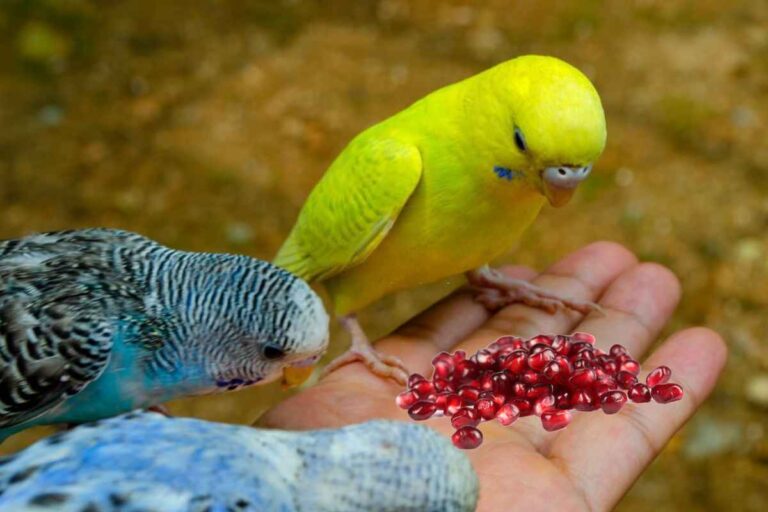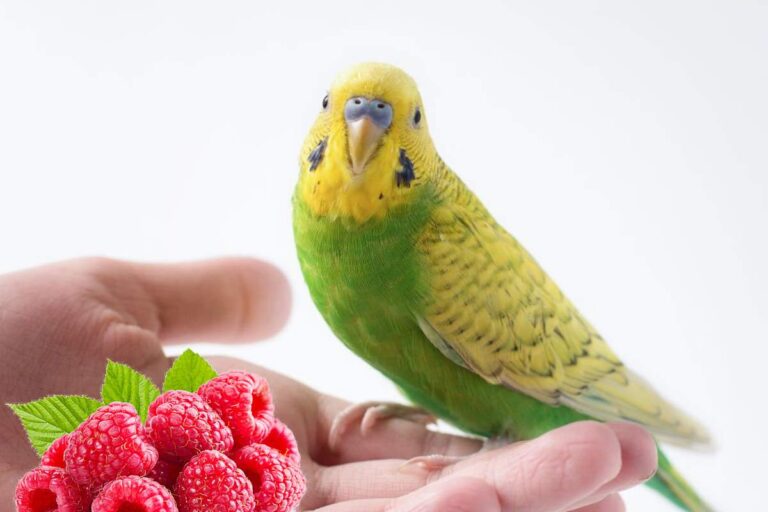Can Ducks Eat Chocolate? The Dangerous Truth about Feeding Ducks
Feeding ducks chocolate is highly detrimental to their health, as it contains theobromine, a compound that’s toxic to many animals, including ducks. This compound, along with other elements like caffeine, sugar, and fats found in chocolate, can lead to serious health issues in ducks, ranging from digestive problems to nervous system damage and cardiovascular complications. Therefore, it’s crucial to avoid feeding ducks chocolate and instead opt for healthier alternatives such as grains, vegetables, insect protein, or commercial duck feed.

Have you ever found yourself tossing breadcrumbs – or even a piece of chocolate – to a quacking duck at your local park and wondering, “Wait, is this really okay for them?” Well, you’re not alone, and we’re here to shed light on this crucial topic. When it comes to ducks and their diet, it’s not always simple. Can ducks eat chocolate? We’ll cut to the chase: the answer is a resounding no. But why not? And what should you feed ducks instead?
Well, hold onto your feathers because we’re about to dive deep into the world of duck diets. From the dangers of chocolate to healthy food alternatives, we’ve got a raft of information that will make you a duck feeding pro. Stick around, you’ll be surprised at what you discover!
Key Takeaways:
- Ducks are omnivores and consume a varied diet of both plant and animal-based food sources, including small fish, insects, worms, seeds, grasses, and fruits.
- Chocolate is harmful to ducks due to the presence of theobromine and caffeine, compounds that ducks can’t metabolize effectively, leading to serious health complications.
- The consumption of chocolate can cause immediate health issues in ducks, including digestive distress and overstimulation of the nervous system, along with potential long-term cardiovascular complications.
- High levels of theobromine can lead to irregular heartbeat, rapid breathing, and heart failure in ducks, potentially shortening their lifespan.
- Feeding ducks chocolate should be avoided at all costs due to the associated high risks.
- Healthier, safer alternatives to chocolate for ducks include grains, fresh vegetables, insect protein, and commercially prepared duck feed.
What do Ducks Usually Eat?
When discussing the dietary habits of ducks, it’s important to remember that they are omnivorous creatures, implying they consume a varied diet of plant-based and animal-based food sources.
Natural Food Sources in the Wild
In their natural environment, ducks are skilled foragers, searching for and consuming a plethora of different food types. They predominantly eat small fish, frogs, and other aquatic animals, along with invertebrates like insects and worms, which supply them with the protein they require for growth and energy. Additionally, they consume a substantial amount of plant matter, including aquatic vegetation, seeds, grasses, and fruits.
Ducks have also been known to graze on land, consuming grass and weeds, much like their larger counterparts, geese. It’s common to see ducks dabbling, which is a feeding method where ducks tip their bodies forward in the water, tail feathers up in the air, to forage along the bottom of a body of water. They’re looking for goodies like small invertebrates and tasty plant matter.
Dietary Habits of Domestic Ducks
Domestic ducks, on the other hand, have somewhat different diets compared to their wild counterparts. Although they maintain their omnivorous nature, the specifics of their diet often depend on the care and feed provided by their human guardians.
Primarily, domestic ducks are fed commercially prepared duck feed, which is specifically formulated to meet their nutritional needs. It typically includes grains, plant proteins, and essential vitamins and minerals. Furthermore, this diet can be supplemented with fresh fruits and vegetables. It’s essential to ensure that any supplemental food is safe for ducks and does not include anything potentially harmful, like chocolate.
While a duck’s diet may seem extensive, it’s not all-inclusive. There are many food items, common in human diets, that can be harmful to ducks, which leads us to the critical discussion of the dangers of feeding chocolate to ducks.
The Dangers of Chocolate to Ducks
Feeding ducks chocolate is a misconception that can have severe repercussions on their health. Chocolate, a treat beloved by humans worldwide, harbors compounds that are unfortunately toxic to many animals, including ducks.
Theobromine: The Hidden Danger in Chocolate
The main culprit behind the toxicity of chocolate is a compound called theobromine. While humans can metabolize this compound efficiently, many animals, including ducks, lack the specific enzyme needed to do this. As a result, when a duck ingests chocolate, the theobromine accumulates in its system, leading to theobromine poisoning.
Theobromine affects the central nervous system and cardiovascular system, leading to symptoms ranging from restlessness and increased urination to severe cardiac arrhythmias and seizures. The severity of these symptoms depends largely on the size of the animal and the amount of chocolate ingested. The darker and richer the chocolate, the higher the level of theobromine, making dark chocolate and baking chocolate particularly dangerous.
Other Harmful Components in Chocolate
In addition to theobromine, chocolate also contains caffeine, another stimulant that ducks can’t metabolize effectively. Like theobromine, caffeine can overstimulate a duck’s nervous system and lead to similar symptoms.
Moreover, chocolate often contains high amounts of sugar and fat, which are unhealthy for ducks. Ducks require a balanced diet to maintain their health, and excessive sugars and fats can lead to obesity, heart disease, and other health issues.
The Effect of Chocolate on a Duck’s Health
When a duck consumes chocolate, it can lead to several health issues, ranging from immediate digestive distress to long-term systemic complications.
Digestive Problems Caused by Chocolate
Theobromine, the primary toxic compound in chocolate, can cause severe gastrointestinal distress in ducks. Symptoms include loss of appetite, excessive thirst, diarrhea, and vomiting. In severe cases, chocolate consumption can lead to acute pancreatitis, a life-threatening condition that causes inflammation of the pancreas.
Impact on the Nervous System
Apart from causing digestive issues, theobromine can lead to overstimulation of a duck’s nervous system. Ducks may exhibit signs of restlessness, hyperactivity, and even tremors or seizures. If left untreated, this could potentially result in permanent neurological damage.
Cardiovascular Complications
High levels of theobromine can also put a strain on a duck’s heart. Over time, this can lead to irregular heartbeat, rapid breathing, and heart failure. Even if a duck survives the initial effects of chocolate poisoning, the long-term impact on its cardiovascular health can significantly shorten its lifespan.
It’s clear that the risks associated with feeding chocolate to ducks are high, and it’s a practice that should be avoided at all costs. Instead, there are several safe and healthy alternatives that ducks can enjoy, which we’ll explore in the next section.
Alternatives to Chocolate in a Duck’s Diet
Given the harmful effects of chocolate on ducks, it’s essential to consider healthier, safer alternatives when feeding these feathered friends.
Grains: A Great Source of Energy
Ducks, like most birds, thrive on a diet rich in grains. Whole grains such as oats, corn, wheat, barley, and rice are great choices. These grains are packed with essential nutrients and provide the much-needed energy that ducks need to stay active.
Vegetables: A Boost of Nutrients
Fresh vegetables are another excellent choice for ducks. Leafy greens like lettuce, spinach, and kale can be easily digested and provide a wealth of vitamins and minerals. Other vegetables such as peas, carrots, and bell peppers can also be included in a duck’s diet.
Insect Protein: A Natural Protein Source
Insects are a natural source of protein for ducks. Mealworms, earthworms, and other small insects can provide the protein ducks need for growth and development. However, care should be taken to source these from safe, pesticide-free environments.
Commercial Duck Feed: Balanced and Nutritious
Commercial duck feed is another safe and balanced dietary option for ducks. Formulated with the right blend of nutrients, commercial feed ensures ducks receive all the necessary elements for a balanced diet.
In conclusion, while it may be tempting to share our treats with ducks, it’s important to remember that their dietary needs are very different from ours. A little knowledge about what to feed ducks can go a long way in ensuring their wellbeing and longevity.
Final Thoughts
Well, there you have it – the comprehensive answer to the intriguing question, “Can ducks eat chocolate?” We’ve journeyed together from understanding a duck’s usual diet to diving into the dangerous effects chocolate can have on these feathered friends. It’s been an enlightening trip, right? We’ve discovered the severe health risks posed by a seemingly innocent treat and, importantly, we’ve explored the nutritious alternatives that make for a happy and healthy duck.
Next time you see a duck at your local pond, you’ll know exactly what to do. Armed with this knowledge, we can all contribute to the wellbeing of ducks, ensuring they continue to grace our parks, ponds, and communities. After all, knowledge is power, and we now have the power to make a real difference in their lives. Thanks for joining us on this voyage of discovery, and remember, always keep your chocolates away from the ducks!
Frequently Asked Questions
1. Can ducks eat white chocolate or milk chocolate instead of dark chocolate?
No, ducks should not consume any type of chocolate. While dark chocolate has the highest theobromine content and is the most toxic, white and milk chocolate also contain theobromine and caffeine, which can be harmful to ducks.
2. Is it okay to feed ducks bread?
No, feeding ducks bread is not advisable. Bread offers little nutritional value and can lead to malnutrition in ducks. Opt for healthier options like grains, vegetables, or commercial duck feed.
3. What’s the impact of chocolate on baby ducks (ducklings)?
Chocolate poses an even greater risk to ducklings due to their smaller size. It can result in more severe symptoms and can be fatal. It’s crucial to keep chocolate away from all ducks, regardless of age.
4. Are there specific vegetables ducks prefer over others?
Ducks generally enjoy a variety of vegetables, but leafy greens like lettuce and spinach are often well-received. However, you can experiment with different vegetables to see which ones your local ducks prefer.
5. Can I feed ducks at any time of the year?
While you can feed ducks throughout the year, it’s best to avoid overfeeding during the winter. Ducks have different dietary needs during cold months and may rely more on natural food sources. Ensure any supplemental feeding aligns with their seasonal requirements.

Martin Cooper
Hello and welcome! I’m an avid bird enthusiast, dedicated to observing, understanding, and documenting our feathery friends. I hope my passion and knowledge inspires your own avian admiration! Join me as we soar into this fascinating world.






